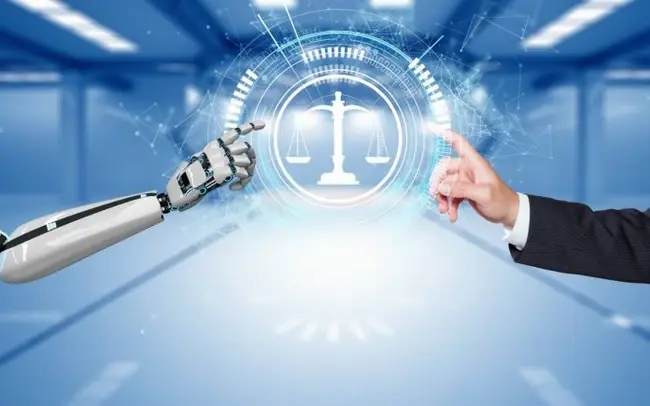Ethics of artificial intelligence (AI) is somewhat of a minefield. Throw human rights into the mix, and you have yourself a densely philosophical debate. AI's widespread adoption, while groundbreaking in many cases, is introducing questions we do not yet have the answer for. Among these questions is whether or not AI is a human rights issue. Born out of uncertainty, concerns have arisen surrounding whether AI is actually capable of maintaining human rights, and doing so universally. There is no true way of knowing what AI's impact on human rights will be. However, some have expressed concerns that it has potential to undermine them. The idea that AI could divide communities, discriminate, and suppress humans rights is not beyond the realms of possibility.

Hesitations on both sides
At present, there is no structure in place to protect human rights in AI. Instead, some attitudes in the field are that human rights bleed into AI and ethics, and is therefore an unnecessary discussion. As well as this, there is a general feel in the AI community that the human rights framework is simply not applicable, as AI is far too complicated to be a perfect parallel. Furthermore, some do not want to see advancements in the field quashed by the introduction of human rights/AI regulations. On the other hand, some are concerned that the growth of AI could result in masses of job losses, consequently disrupting income equality. Algorithm-based decision making has also raised questions about whether it could build a discriminatory infrastructure. However, it's interesting to look at it from another angle: what can AI do (or what has it already done) to enhance our rights?
A more positive outlook
It's undeniable that AI has worked wonders in some industries. Take healthcare, for example. AI can help to enhance detection of diseases. As well as this, AI empowers people to take control of their lifestyle and conditions through mobile apps. AI has also been hugely beneficial for disabilities. People with disabilities can use assisted technologies to see, hear, communicate, and work better, and AI is driving much of this. AI is constantly being trialled to help individuals lead a better and more independent life. As well as that, AI has significantly enhanced our security. With AI being at the heart of most antivirus and anti-malware software, spam and scams experience much more difficulty in causing any damage.
A future forecast
AI has demonstrated good use and benefits in many fields, though reservations about it are with good reason. The issue boils down to this: AI has most likely outgrown current policies and practices. No real conversation has been had about human rights, and that's because we haven't had to, until now. This begs the need to revisit structures and make sure no stone is left unturned when investigating the impact it could have on our rights. However, perceptions of an impending doom are perhaps far-fetched, as AI so far has done us more good than harm.




Comments ( 0 )